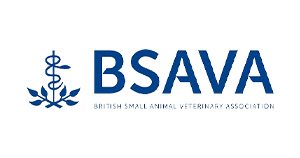Easter Dangers for Dogs: Chocolate, Baked Goods & More! Keep Your Pup Safe
Published on: Mar 1, 2020
Spring is upon us, and the Easter holiday is fast approaching and lots of chocolatey treats will be lining up ready to consume in excess. However, humans are not the only ones with a sweet tooth, chocolate toxicity percentages in dogs rise over the Easter period and dogs are usually admitted inducing vomiting (if ingested within the first 3 hours). Other symptoms include mild gastrointestinal signs (vomiting and diarrhoea) hospitalised and monitored vital signs from kidney parameters, abnormal heart rate, hyper excitability, overheating and in worse case scenarios convulsions, coma and death.
This is due to the component in chocolate called Theobromine. The darker and more concentrated the chocolate, the more toxic it is; with white chocolate being a lower risk, milk chocolate a higher risk and dark chocolate the most dangerous. Symptoms are based on the amount of chocolate your dog ate, the type of chocolate (dark, cooking, cocoa powder, cocoa beans, or milk), and the weight of your dog.
Please take into consideration some of these products that contain Theobromine will be within your baking goods too. Take care when planning a chocolate Easter egg treasure hunt trial and keep dogs away from the area until you know all chocolate has been retrieved.
On the subject of baking, other sweet and traditional treats during Easter will be Easter cakes and Easter biscuits and can be poisonous to dogs, and potentially poisonous to cats. It’s thought the dried versions of the fruits (e.g. raisins and currents) are more likely to cause severe symptoms and potentially renal failure. But it’s unclear exactly what causes the toxic effects. Symptoms include gastrointestinal signs, abdominal pain, and loss of appetite, lethargy and weakness, difficulty in passing urine, hyperexcitability, seizures, coma and sometimes death.
If you are thinking of making a healthier alternative with sweet treats, Xylitol is a sugar substitute and found in many sweeteners and is also a high level of toxicity. It can cause low glucose levels in the blood stream due to high levels of insulin being released from the pancreas and the effect can occur as quick as 10-60 minutes after eating Xylitol. Left untreated hypoglycaemia can cause extreme illness and death.
Please also be aware of packaging being kept away from your dog, e.g. tinfoil that has been covering your chocolate and plastic wrapping etc – these can cause gastrointestinal upsets or in worst case scenarios gastrointestinal obstruction that will need veterinary attention and surgical intervention.
If you are ever concerned that your pet has eaten something toxic, please do contact your Veterinary Surgery ASAP.


Author –
Natalie Hill
Chocolates, raisins & xylitol can be toxic to dogs! Learn Easter dangers & how to keep your furry friend safe with Shepton & Wells Vets.
easter dangers for dogs | dog ate chocolate | toxic foods for dogs | chocolate poisoning in dogs | raisins and grapes for dogs | xylitol dangers for dogs | easter egg hunt safety | Shepton and Wells Vets
More Articles from Nat
More Articles
Caring for your pet as we do our own

At Shepton and Wells Vets, we understand what your pets mean to you, and so our Pets team aim to care for each and every one of them as we would do our own.
We care about your pet
Our primary focus is keeping them fit, happy and healthy with comprehensive and effective preventative healthcare, advice and treatment.
We care about you
We aim to communicate clearly and honestly with you, and discuss different treatment options so that you can make the right informed choices for you and your pet.
We care about clinical excellence
We take pride in providing a high level of medical and surgical care, working together as a team to do the very best we can for your pet.











